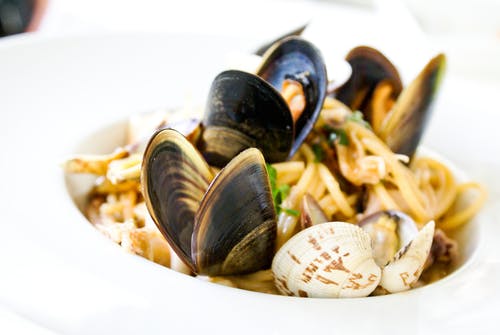Posted: Jul 02, 2019

A marine researcher says that this is the most massive mussel die-off that she’s seen in 15 years.
Whenever the afternoon temperature starts creeping past the 80 degree mark, one might consider that old adage about it being so hot outside that you could fry an egg. Sometimes, it feels that scorching on a summer day, but according to the Library of Congress, an egg won’t start cooking until it hits a temperature of 158 degrees Fahrenheit—and the average paved sidewalk might only hit 145 degrees.
But Jackie Sones, a research coordinator at Bodega Marine Reserve in Sonoma County, California, recently noticed that a significant number of California mussels had died inside their own shells—and it could be because the temperatures were hot enough to cook them on the rocks they’d attached themselves to.
In mid-June, Sones was doing some field work near Bodega Bay when she noticed that a significant number of the mussels that had been exposed during low tide were gaping open, because they’d essentially been steamed to death in their own shells. She documented the mussel deaths in three parts—all of them called “Too Hot”—on her blog, The Natural History of Bodega Head.
Sones believes that this is the most massive mussel die-off that she’d seen in 15 years.
“In recent surveys conducted in Bodega Bay this past weekend, on average about 30% of the mussels in the surface layer have died,” she told VICE in an email. “Some sites suffered ~5% mortality, while others experienced [more than] 70% mortality. During a 2004 event, the average mortality rate was about 10%, so the June 2019 event has been more severe.”
According to Bay Nature, in mid-June—when Sones first noted the mussel deaths—the air temperature in Bodega Bay was a warmer-than-average 75 degrees, there was no breeze to speak of, and low tides were occurring in the middle of the day. The mussels were unable to cool themselves without that breeze, and the temperatures inside their shells might have reached an uncomfortable (and deadly) 105 degrees. “They were just literally cooking out there,” Northeastern University marine ecologist Brian Helmuth told the site.
In addition to enduring a fate even worse than having to hear that Dave Matthews song about cooking eggs outside and licking someone’s sweat off their face on repeat, Sones says that these mussel deaths will affect other parts of the Bay’s ecosystem. “California Mussels are ‘foundation’ species, providing habitat for a very high diversity of other animals,” she said. “Although not all of the mussels have died, losing the upper layer of mussels will likely have a negative impact on the animals living lower in the mussel bed.”
When the mussels fell victim to a similar fate in 2004, researchers believe that it was caused by a similar combination of unusually high daytime temperatures and daytime low tides, which left the mussels exposed to that heat. ( Bay Nature notes that normally the hottest days of the year in northern California correspond with early morning or late-night low tides.) But, as we seem to be learning—in nature and, well, in life—what used to be normal isn’t necessarily what’s happening anymore.
“Climate scientists believe that the frequency and duration of heat waves is going to increase,” Sones wrote. “From that perspective, although it’s hard to predict the future, it’s important to document these extreme weather events and their impacts.”
Maybe you will be able to cook eggs on the sidewalk, after all. But that’s probably not a good thing.
By Jelisa Castrodale
July 2, 2019
Source: Vice.com
Go-Wine's mission is to organize food and beverage information and make it universally accessible and beneficial. These are the benefits of sharing your article in Go-Wine.com